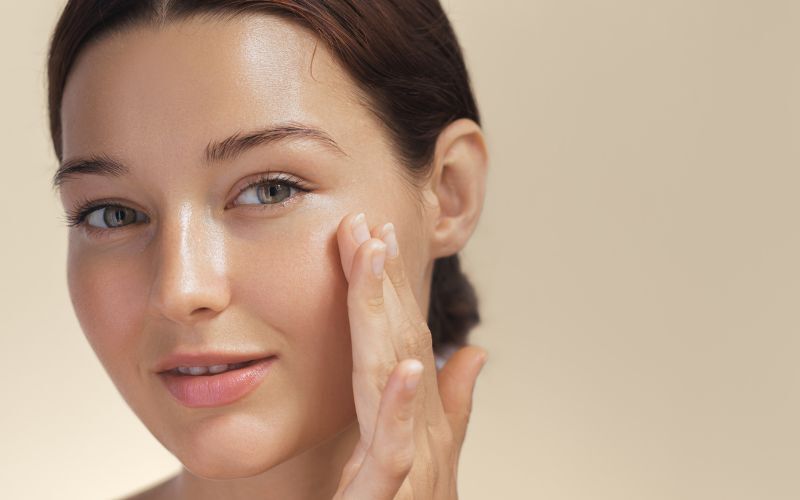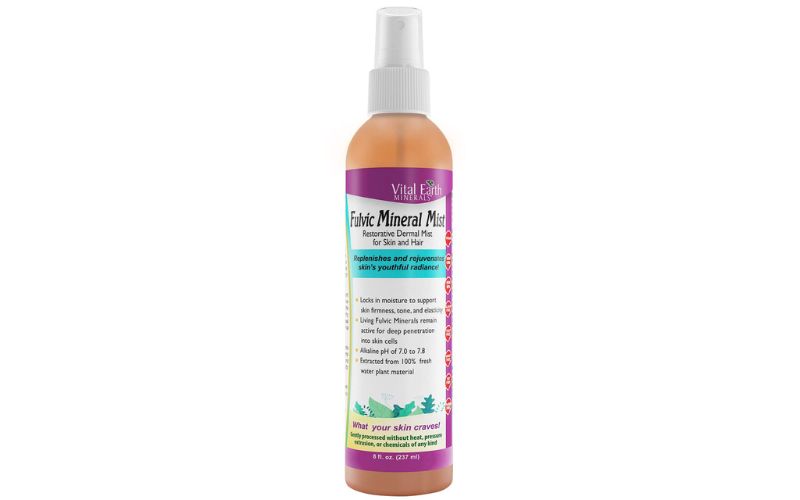Dietary Considerations for Skin Health & Glow
9th Jun 2025
Most of us pay attention to skincare products, regimens, and perhaps the occasional spa visit in hopes of having glowing, healthy-looking skin. But healthy skin starts with our diet. What we eat can affect how our skin looks and feels.
Your skin is not only the largest organ in your body; it also protects you from things like UV rays, pollution, and toxins. Providing the right nutrients helps it function optimally, repair itself, and maintain that coveted glow. Today's blog will explore the best foods for skin health and how your food choices can help nurture and protect your skin from within.
Why Nutrition Is Important to Your Skin
Your skin is subject to constant internal and external stressors, from changing hormone levels to environmental toxins. As with the rest of your body, it needs specific nutrients to renew itself, maintain moisture, and defend against injury.
What we eat not only impacts our waistline and energy levels, but it also directly impacts how our skin appears and feels. A well-balanced diet is essential in minimizing wrinkles, making your skin smooth, enhancing skin tone, and controlling acne, psoriasis, or eczema.
Fulvic Mineral Mist: Deep Moisture & Skin Rejuvenation
Vital Earth's Fulvic Mineral Mist delivers a potent blend of living fulvic minerals that deeply penetrate skin cells to lock in moisture, improving firmness, tone, and elasticity. Its small molecular size provides powerful antioxidant support, making it ideal for skin irritations, cuts, abrasions, and minor burns. Extracted from 100% fresh water plant material, this naturally alkaline mist enhances skin renewal, balances pigmentation, and supports collagen production for long-term rejuvenation.
Unlock Radiant Skin with Fulvic Mineral Mist!
Essential Nutrients for Healthy Skin
Including nutrient-rich foods in your diet can give your skin the vitamins, minerals, antioxidants, and healthy fats it needs. Let's discover the most important nutrients that help achieve a radiant complexion.
1. Vitamins for Skin Health
Vitamins are crucial in maintaining healthy and youthful skin by supporting cell regeneration and protecting against environmental damage.
1.1 Vitamin A: The Skin Regenerator
Vitamin A is also very important in the skin's cell turnover cycle. Vitamin A causes the removal of old skin cells and encourages the development of new cells, which prevents your skin from looking old or worn out.
1.2 Vitamin C: The Antioxidant Protector
Vitamin C is a potent antioxidant that helps protect the skin from oxidative stress caused by free radicals. It’s also essential for collagen production—the protein that maintains skin structure and elasticity. Adequate vitamin C intake helps prevent sagging skin and fine lines, making it a necessary part of any anti-aging diet.
1.3 Vitamin E: The Skin Healer
Vitamin E protects your skin from environmental stressors like UV light and pollution due to its antioxidant power. It helps maintain skin hydration, prevents inflammation, and promotes the healing process of injured skin.
1.4 Vitamin D: The Healing Vitamin
Vitamin D is crucial for skin repair and immune function. Low vitamin D levels can lead to skin problems like acne, eczema, and psoriasis. The best way to get vitamin D is from sunlight. You can also find it in fatty fish and foods with added vitamins.
2. Minerals That Benefit the Skin
Minerals are vital for skin health, helping to repair damage, control oil production, and protect against inflammation. Zinc, selenium, and magnesium are important for reducing acne, promoting healing, and maintaining skin moisture.

2.1 Zinc: The Acne Fighter
Zinc is a mineral that helps maintain your immune system, speeds up wound healing, and controls oil production in the skin. Due to its anti-inflammatory effect, zinc is usually prescribed for acne skin. Zinc also functions in collagen synthesis, which keeps the skin firm and smooth.
2.2 Magnesium: The Skin Hydrator
Magnesium helps keep skin hydrated and reduces inflammation, which is important for a youthful look. It also supports collagen and elastin production, two proteins vital for skin structure.
Best Sources: Almonds, avocados, spinach, and legumes.
3. Healthy Fats for Skin Nourishment
Healthy fats, especially omega-3s and monounsaturated fats, are essential for keeping skin hydrated and firm. These fats help maintain the skin's lipid barrier, reduce inflammation, and protect against environmental stressors.
3.1 Omega-3 Fatty Acids: The Moisture Lock
Omega-3 fatty acids are healthy fats that preserve the skin's natural barrier, inhibit water loss, and hydrate the skin. They also contain anti-inflammatory ingredients, which can reduce redness and swelling caused by acne or rosacea.
3.2 Monounsaturated Fats: The Skin Softener
Monounsaturated fats are another essential nutrient for healthy skin. These fats maintain the skin's elasticity and moisture and help decrease the visibility of wrinkles and fine lines.
4. Antioxidant-Rich Foods to Protect Your Skin
Antioxidants destroy free radicals—unstable molecules that may destroy skin cells, speed up aging, and play a causative role in skin conditions such as acne, pigmentation, and dryness. Consuming a diet abundant in antioxidants may shield your skin and diminish the appearance of aging.
4.1 Berries: The Anti-Aging Fruits
Berries like blueberries, raspberries, and strawberries have antioxidants that minimize inflammation and oxidative stress. Vitamin C found in berries also aids in collagen production, maintaining firm, youthful-looking skin.
4.2 Green Tea: The Skin Soother
Green tea contains high catechins, an antioxidant proven to shield the skin from UV damage, decrease redness, and even enhance its elasticity. Consuming or applying green tea topically can address acne and aging issues.
Best Sources: Brewed green tea and green tea extracts in skincare products.
4.3 Dark Chocolate: The Skin-Boosting Indulgence
Dark chocolate, particularly types with 70% or more cocoa content, is rich in flavonoids that shield the skin from UV damage, improve hydration, and enhance skin density.
5. Hydration: The Building Block of Healthy Skin
Keeping your skin moist is one of the easiest and most efficient ways of keeping it elastic and smooth. Dry, flaky skin and worse wrinkles can be caused by dehydration.
5.1 Water: The Ultimate Skin Drink
Consuming a lot of water throughout the day keeps your skin moist. Maintaining the skin's hydration ensures its barrier function and makes it more resistant to environmental aggressors.
5.2 Cucumbers: The Hydrating Snack
Cucumbers are full of water and silica, which aids collagen production and moisturizes skin. They also contain anti-inflammatory compounds that can calm irritated skin.
Foods to Avoid for Better Skin
While some foods can do wonders for your complexion, others can cause inflammation and worsen conditions such as acne or eczema. Limiting the amount of certain food groups can contribute to clearer, healthier-looking skin.
- Refined Carbohydrates & Sweet Foods: High-glycemic foods like white bread, sweets, and sweet drinks can lead to insulin spikes that produce excess oil and acne breakouts.
- Dairy Foods: For others, dairy, particularly milk and cheese, may bring on acne. If you tend to break out, try reducing your dairy intake to see if your skin improves.
Putting It All Together: A Skin-Healthy Diet
Attaining radiant skin is a holistic process that entwines the correct foods with the proper skincare practices. A meal of fruits, vegetables, healthy fats, and lean proteins can improve skin condition immensely.
Adding nutrient-rich foods to your meals will feed your skin and aid your overall well-being. This method is long-term, so with regularity, the benefits will last.
FAQs on Diet and Skin Health
Will eating chocolate benefit your skin?
Yes, dark chocolate with high cocoa (70% and above) has antioxidants that protect the skin against UV damage and enhance moisture, resulting in healthier skin.
How long until I notice improvements in skin based on diet?
Within a couple of weeks to a couple of months, you can see noticeable changes in your skin as it rejuvenates with time. Stick to both diet and skincare consistently.
Should I eliminate dairy for smoother skin?
Dairy can cause acne in some individuals, but not everyone. If you think dairy is affecting your skin, eliminate it for a few weeks and observe whether there is any change.






